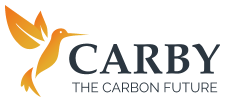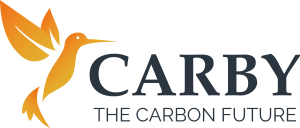
REDD+ Project for Caribbean Guatemala: the Conservation Coast
- Nature conservation
This project is an Agriculture, Forestry and Other Land Use (AFOLU) project under the Reducing Emissions from Deforestation and Degradation (REDD) project category. Specifically, the project is of the “Avoided Unplanned Deforestation & Degradation” (AUDD) project category.The project is estimated to generate approximately 17,921,895 VCUs over 30 years. The project area is located in Department of Izabal in the Caribbean coast region of Guatemala in the Sarstun-Motagua reference region proposed by the national level REDD+ program. Belonging to the biologically diverse Mesoamerican Biological Corridor, forests in the project area are important nationally and internationally for the ecosystem services they provide. The project area forests, however, have experienced a continued reduction in biomass due largely to small-scale farmers and medium to large scale cattle ranchers that have sought to expand their activities or have been displaced by agro-industrial expansion. These forests have also historically been an important source of income for local families, who periodically harvest small amounts of timber when the economic needs arise.In 2013 Guatemala passed the Framework for the Regulation of the Reduction of Vulnerability, the Mandatory Adaptation to the effects of Climate Change and the Mitigation of the effects of Greenhouse Gases (Decree 07-2013) which gave landowners the rights to emission reductions generated in either voluntary or compliance markets. This law allowed the REDD+ Project for Caribbean Guatemala to pursue a Grouped Project design where the project proponent, FUNDAECO, could represent small landowners and manage the development of a REDD+ project on their behalf through legal contracts that transfer project ownership to FUNDAECO.The expansion of industrial agriculture and migration of subsistence farmers and cattle ranchers into protected areas is a historical trend observed in the project zone. Consequently, forests and land within protected areas are an important source of income within the project zone and is the major focus of the REDD+ project. The project aims to alleviate these pressures on the forests through the support of governance capacity (including individual property titling, land-use planning and conservation zone demarcation), the generation of alternative economic activities and income sources, and through capacity building in administration and management. These project activities, beyond protecting local forests and biodiversity, contribute to social and economic development in one of the poorest areas of Guatemala. The effectiveness of these activities is partially dependent on their long-term economic success and wide-spread adoption. Since the project’s inception, local communities have been actively participating in the project’s formulation and implementation. The early involvement of participating communities has created awareness among community members and readiness for project implementation.
Recent project blog posts
No posts
Carbon credits
| Year | Type | Quantity |
|---|---|---|
| 2023 | Issuance | 964,998 |
| 2023 | Retirement | 1,393,941 |
| 2022 | Issuance | 833,888 |
| 2022 | Retirement | 711,551 |
| 2021 | Issuance | 513,002 |
| 2021 | Retirement | 845,335 |
| 2020 | Issuance | 633,870 |
| 2020 | Retirement | 257,246 |
| 2019 | Issuance | 3,304,905 |
| 2019 | Retirement | 226,736 |
| 2018 | Issuance | 11,194 |
| 2018 | Retirement | 11,072 |


